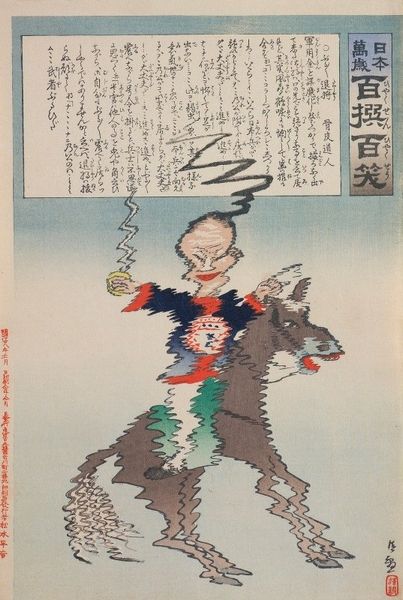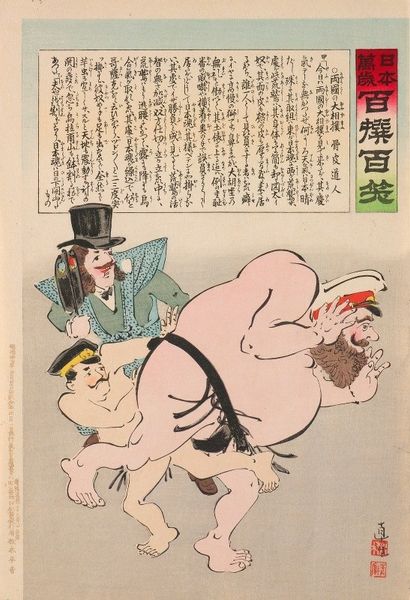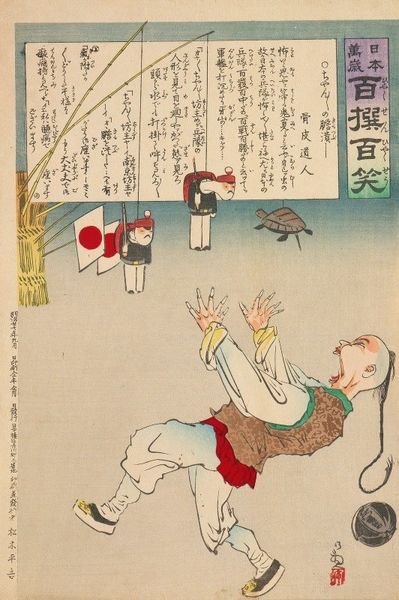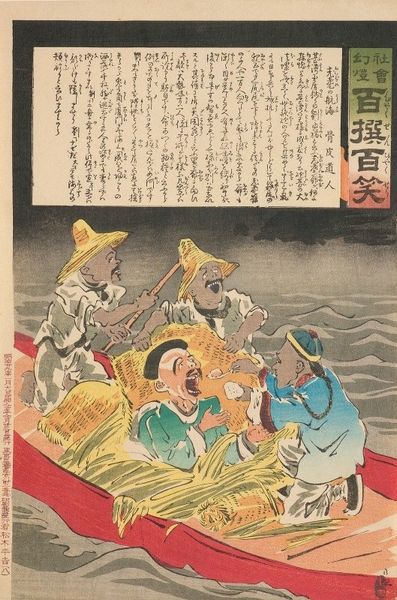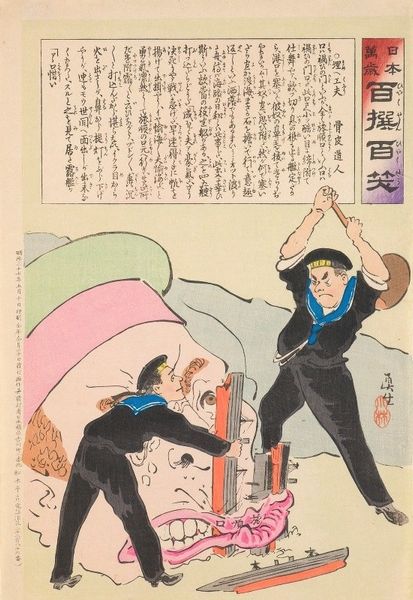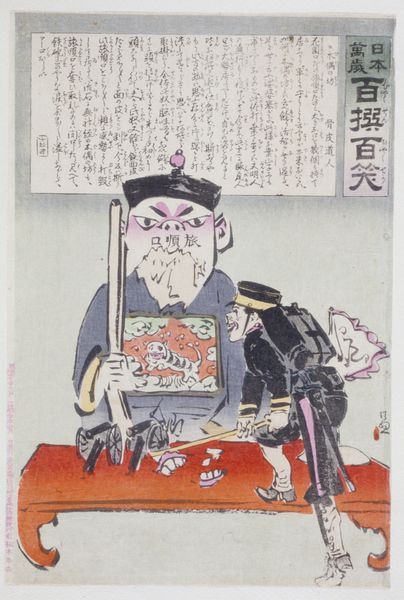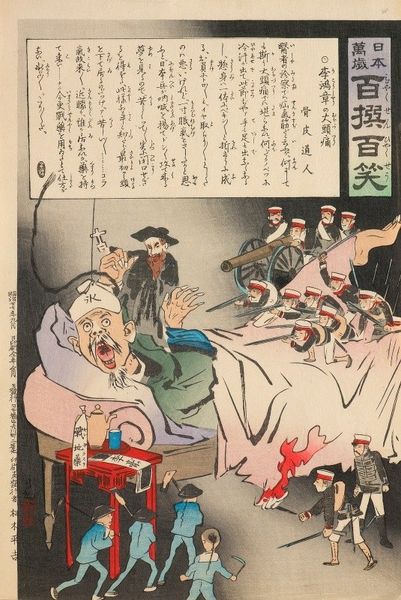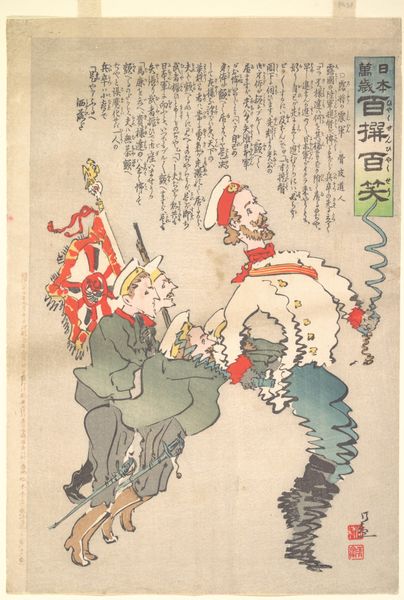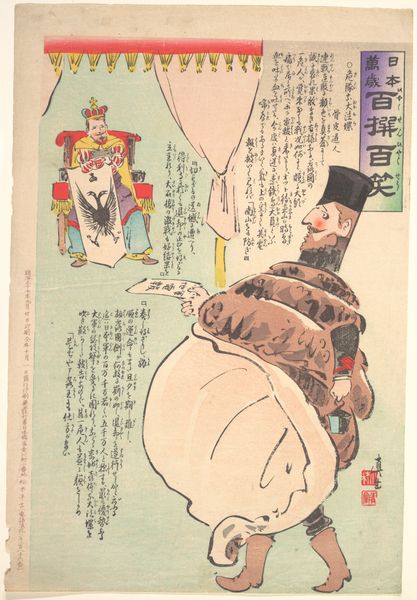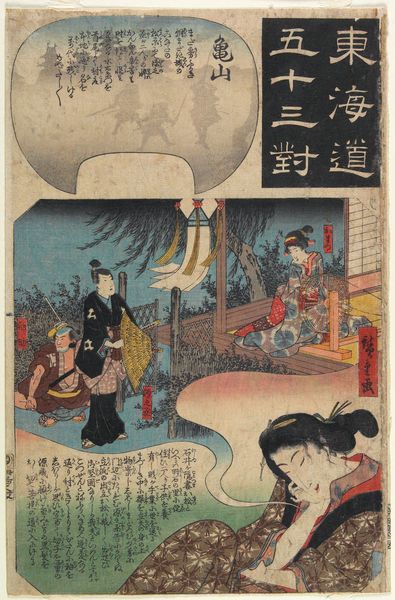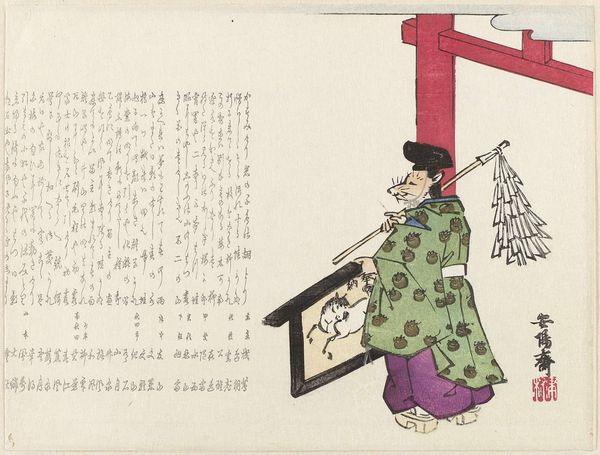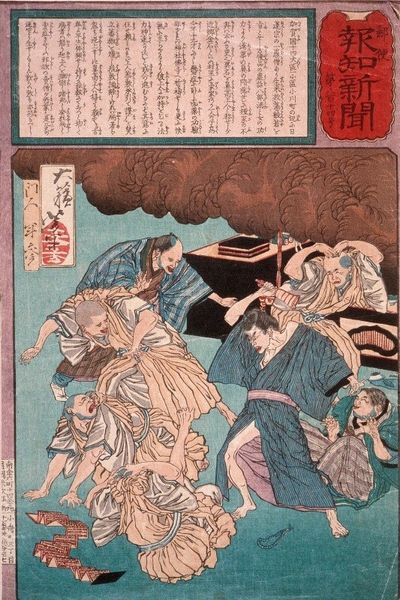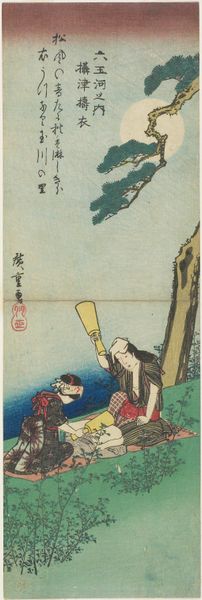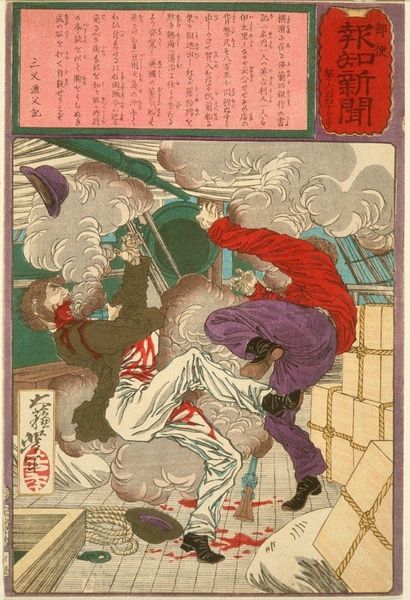
The Honorable Defeated General, from the Series ‘Long Live Japan! One Hundred Selections, One Hundred Laughs’ 1894
0:00
0:00
#
asian-art
#
sketch book
#
cartoon sketch
#
personal sketchbook
#
sketchwork
#
ink drawing experimentation
#
sketchbook drawing
#
watercolour illustration
#
storyboard and sketchbook work
#
cartoon carciture
#
sketchbook art
Copyright: Public Domain: Artvee
Curator: This intriguing print, created in 1894 by Kobayashi Kiyochika, is titled 'The Honorable Defeated General, from the Series ‘Long Live Japan! One Hundred Selections, One Hundred Laughs’'. The imagery, the almost cartoonish rendering… it’s striking. Editor: Yes, immediately, the contrast of caricature and what appears to be nationalistic fervor strikes me. There’s a dark humor, almost a cynical undertone, especially with the 'Honorable Defeated General' front and center. Curator: Kiyochika's work often served as commentary on the socio-political landscape of Meiji-era Japan. As Japan modernized and expanded its imperial ambitions, imagery like this reveals both celebratory and critical perspectives. It speaks to the role of propaganda. Editor: Exactly, the context is key. The Sino-Japanese War had just begun when this print was made. It reflects the complex blend of triumphalism and anxieties present in Japanese society at that time. Look at the subservient figure in the foreground and the victorious battle scene implied in the clouds – a powerful commentary on shifting power dynamics. Curator: And note the general's almost theatrical pose and his partial nudity which makes him appear very vulnerable, set against the small figure in the foreground holding what seems to be a picture frame with a blank canvas inside it. This feels intentionally provocative. It draws the eye immediately. Editor: Indeed. I wonder, what stories will be painted to record and reflect on these events? What will they omit, what will they amplify? And the idea of presenting defeat as honorable feels like a way to cope with underlying tension about what may happen to come. Curator: Precisely. The image asks us to consider the stories we tell ourselves, and the way we immortalize those stories into something that looks like fact. It certainly adds complexity to our understanding of wartime propaganda of the period. Editor: Ultimately, this print acts as a reminder that victory and defeat are never simple, clean-cut concepts, especially when viewed through the lens of history and identity. And it makes you think who ultimately writes the narrative? Curator: It leaves me with questions about the artist's intent and what Kiyochika hoped to convey about the changing socio-political situation within Japanese society in the mid 1890s. Editor: It serves as a testament to the potent role of art as both a recorder and a shaper of public sentiment, in past and present times.
Comments
No comments
Be the first to comment and join the conversation on the ultimate creative platform.
